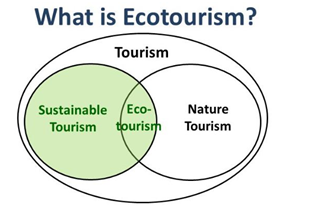ecotourism centres closed in Wayanad
29, Mar 2019

The entry of tourists to four major ecotourism tourism centres under the South Wayanad Forest Division in Wayanad district has been closed as per a directive of the Kerala High Court.
Ecotourism in Wayanad
The presence of Western Ghats, dense forests, rich wildlife and opportunities for outdoor activities make Wayanad an excellent place for eco-tourism. Wayanad is an enchanting holiday retreat in Kerala with rich natural resources, panoramic natural beauty, mind-blowing mountain ranges, green valleys, great topography and unique climate. In fact, this destination provides a lot of things that cater the demands of travelers. Nowadays, ecotourism is gaining popularity and Wayanad has everything to promote ecotourism.
Ecotourism in Muthanga and Tholpetty
The main two centers for ecotourism are Muthanga and Tholpetty and managed by the Eco-Development Committees. It is under the surveillance of Kerala forest department. Both of these ecotourism centers are the part of the Wayanad Wildlife Sanctuary and hot wildlife tourist spots. Visiting these ecotourism spots in Wayanad can be a wonderful travel experience for each tourist. The frequent sightings of several rare wild animals such as tigers, leopards, guars, monkeys, herds of elephants and several rare species of birds and reptiles give lifetime wilderness experience to them.
Ecotourism

Ecotourism is a form of tourism involving visiting fragile, pristine, and relatively undisturbed natural areas, intended as a low-impact and often small scale alternative to standard commercial mass tourism.
It means responsible travel to natural areas, conserving the environment, and improving the well-being of the local people.
Its purpose may be to educate the traveler, to provide funds for ecological conservation, to directly benefit the economic development and political empowerment of local communities, or to foster respect for different cultures and for human rights.
Since the 1980s, ecotourism has been considered a critical endeavor by environmentalists, so that future generations may experience destinations relatively untouched by human intervention.






